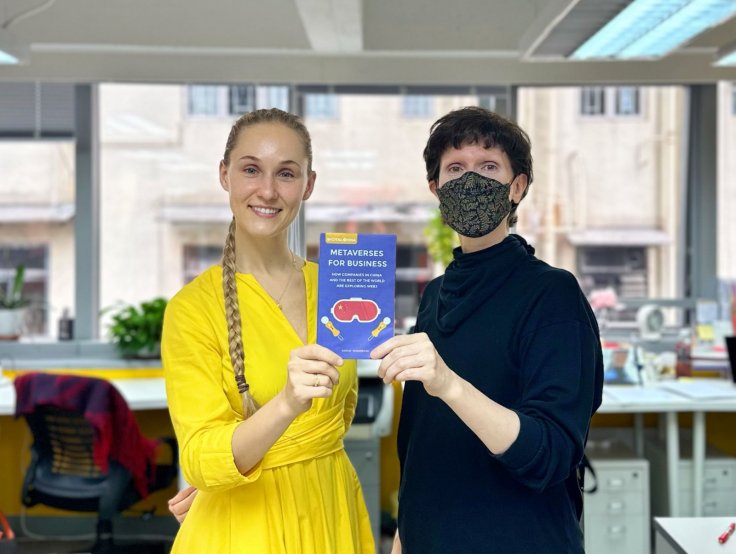
In October, 2021, Facebook changed its name to Meta and declared that it would be pursuing a metaverse strategy. The world grabbed hold of the word "metaverse" and ran with it. For a while. The new concepts that have replaced it in the public imagination are ChatGPT and AI content generators. While a number of tech companies globally have decided to wind down their metaverse teams, XR is still being used and metaverses are being developed.
Ashley Dudarenok is a naturalised Chinese entrepreneur who specializes in China's digital transformation who has published a series of books on her specialist subject.
Her latest book, called Metaverses for Business: How Companies in China and the Rest of the World are Exploring Web3, concentrates on China and the US, but Singapore, as a financial and tech hub in Asia, is one of the places on the forefront of Web3 and metaverse tech and has several examples that highlight the differences in approaches to new tech that the West and Asia have.
Dudarenok's new book takes a look at what metaverses are and how they're handled differently in different countries. This is her tenth book in a Digital China series that looks at digital transformation, marketing, and technology topics related to China. Now based in Hong Kong,
Ashley has seen the transformation of the tech landscape in mainland China firsthand. She attended university in Chongqing during China's economic boom time so she saw the changes happening right in front of her.
"I watched as China leapfrogged from cash straight to mobile payments and then on to facial scan payments. It went from not having home computers right to mobiles. It even managed to jump right past some traditional e-commerce phases into social commerce and live streaming," she says.
"More recently, China has sped ahead in its effort to manufacture a semiconductor with circuits that are only 7 nanometers wide when, as recently as 2020, Chinese manufacturers struggled to get below 40 nanometers. They did it at China speed."
While the world has seen metaverse projects take a hit, the rapid rise and fall of virtual world app Bondee, which was developed by Singapore-based Metadream, being one example, the development of immersive worlds continue and it remains a key tool for areas like engineering, architecture, healthcare and there are multiple ways that businesses large and small can use immersive marketing tools, like AR and VR, Web3 approaches and NFTs.
"Singapore is a city, like many in Asia, that's ahead of the game with a relatively receptive public and government policies that favor metaverse and Web3 development. This is something it shares with China, although the Chinese public seems even more receptive," says Dudarenok.
Like China, Singapore has favourable policies and plans for the promotion of XR, metaverses, NFTs, and other areas related to Web3 and has regular events to promote tech development, especially those attached to finance and law. For example, Singapore started a TechLaw Fest in 2017 which continued in a virtual format during the peak of the pandemic. Singapore also launched its homegrown metaverse platform that can be navigated using VR. A series of projects were launched on the platform with the biggest being an entire virtual world dedicated to Singapore's National Day Parade.
Where Singapore differs significantly from China is that it cautiously welcomes cryptocurrencies. As a fintech center, it promotes the development of blockchain payment solutions and alternative currencies. It has banned ads for crypto trading and crypto credit but it's accepting applications for digital payment token licenses.
Singaporeans seem also less excited about the metaverse. According to a survey done by Ipsos, respondents in China were the most positive about the metaverse at 78 percent while only 57 percent of those in Singapore felt the same.
"The focus is now on AI solutions but in the background, the metaverse is still developing and businesses need to stay on top of things. If not, they won't be ready when the time comes. And things can change quickly. We don't know when the next tech breakthrough will happen."









